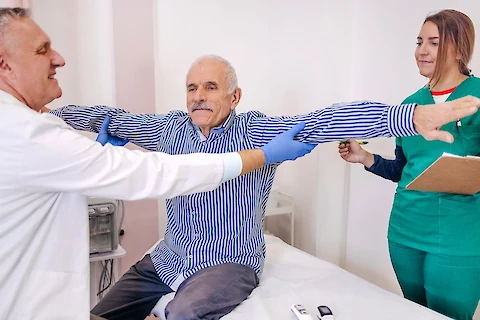
Marking American Heart Month, February brings an opportunity to increase awareness about heart diseases, their prevention, and their profound effects on individuals, particularly seniors. One such effect and focus of our discussion today revolves around the mental changes that accompany a heart attack.
A heart attack is a life-changing event that not only affects your physical health but can also take a toll on your mental well-being. It brings about changes that are sometimes hard to comprehend and navigate. Seniors and caregivers should take time to understand the mental states that can be triggered by a heart attack, along with the stress and anxiety that follow.
What Physical Changes Happen After a Heart Attack?
What is commonly referred to as a heart attack involves the partial or complete blockage of the coronary arteries. This blockage often results in a lack of oxygen being delivered to the heart, which in turn causes damage in the form of one or multiple heart attacks. The physical changes that follow a heart attack are often profound, including fatigue, shortness of breath, and diminished physical endurance.
These physical changes, while seemingly confined to the body, can significantly impact the mental state of an individual. For many seniors, the loss of physical strength incites a loss of independence, leading to frustration, helplessness, and despair. This unexpected shift in one's physical capacity can cause emotional turbulence. These changes can significantly affect a senior's mental state and overall quality of life if left unchecked.
Understanding the Psychological Impact of a Heart Attack
Significant lifestyle changes often follow a heart attack. These changes include:
- Altered diet
- Incorporation of physical activity
- Medication management
- Regular checkups
While these changes are crucial to prevent future heart-related issues, they can also pose a source of stress and anxiety. Seniors may often feel overwhelmed by the sudden influx of new health routines and dietary restrictions.
Moreover, with the recognition of the fragility of health, seniors may also develop specific phobias or fears, such as the fear of having another heart attack. This fear, often called cardiac anxiety, can lead to persistent worry, unease, and, in severe cases, anxiety disorders.
Coping and Finding Support After a Heart Attack
While the aftermath of a heart attack can be daunting, remember you're not alone in this journey. Acceptance of changes is the first step, followed by the development of coping mechanisms to deal with stress and anxiety.
Seeking professional psychological help is also essential. Counseling or therapy can provide a safe space to express emotions and concerns and learn effective strategies for managing stress, anxiety, and lifestyle changes.
Consider joining support groups where shared experiences and knowledge can provide comfort and practical advice. It's comforting to know that you are not alone and that others are facing similar challenges.
How Are You Coping After a Heart Attack?
Recovering from a heart attack is much more than just physical healing. It is a comprehensive process that involves the mind, body, and soul. The mental changes that follow a heart attack are as real as the physical ones, and addressing these changes is crucial for a complete and healthy recovery.
If you live in Apache Junction, Coolidge, Florence, San Tan Valley, or Superior, remember you don't have to face these challenges alone. Senior Helpers Queen Creek is committed to supporting you on this journey towards recovery. Contact us today. We are ready to offer professional in-home care services and companionship. Let's walk this journey together!